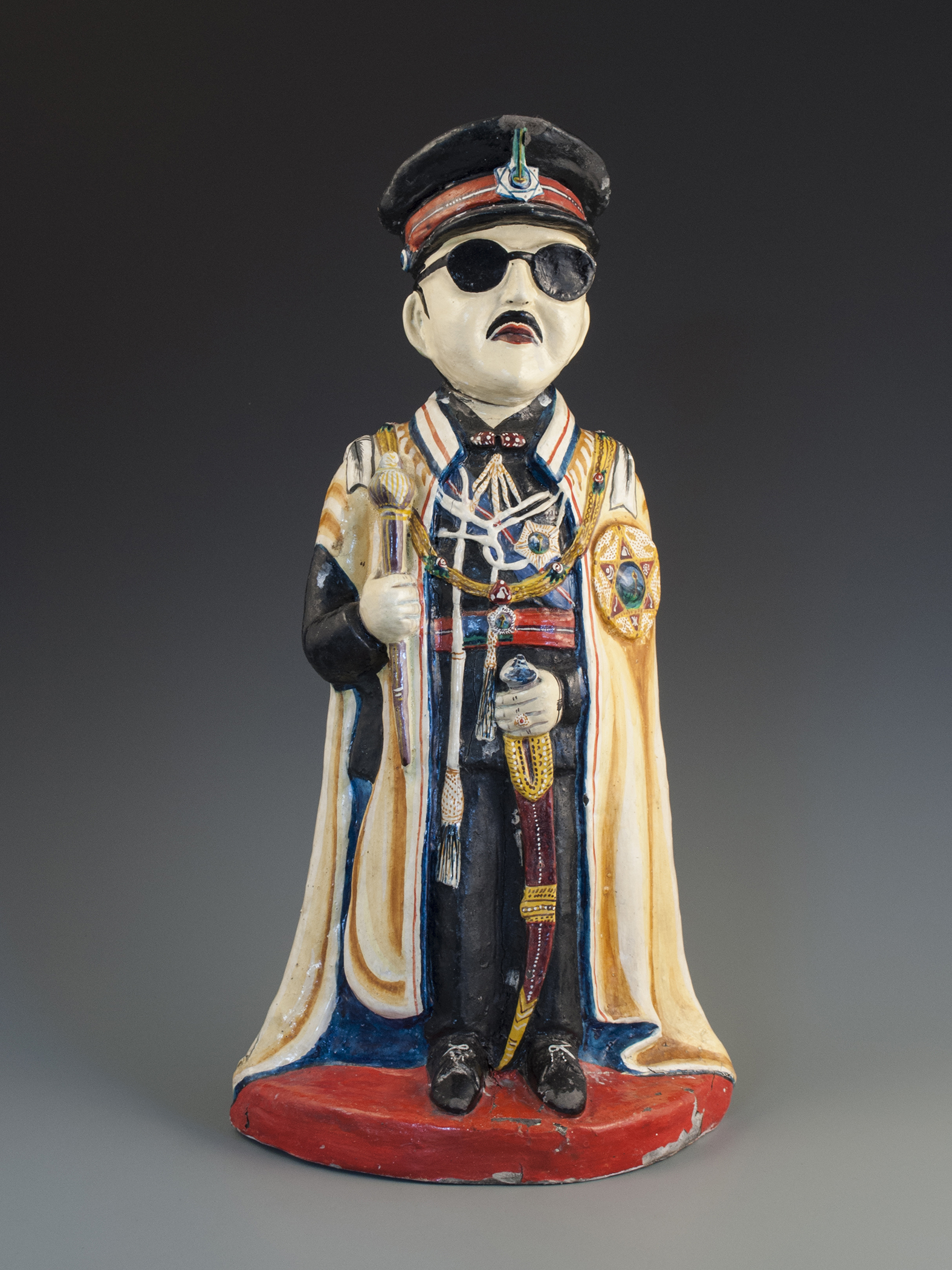King Birendra Whiskey Decanter
Thami, Nepal, Mid-1990s

Sometimes I think we need a king. Not just the U.S., but the world. And not a traditional king, but a brilliant, wise, and benevolent ruler: Someone who will decree universal health care, command that carbon emissions be brought down to survivable levels, and transform our economy into the engine of a green, humanistic utopia. Like King Arthur, but vegan and tech-savvy.
Birendra was not such a monarch. He was a disinterested and ineffectual king who preferred to stay at home, smoke cigars, and watch Bruce Lee movies. But he was benign—so benign that he was allowed to keep his head, and stay on as a constitutional monarch, after being overthrown during Nepal’s 1990 “People Power” revolution.
After the revolution Birendra was rebranded, by the Nepalis, from a despised despot into a beloved figurehead. He was the glue that held the nation together. Beneath the centuries-old symbol of his royal scepter, the nearly 100 ethnic groups living within Nepal’s landlocked borders—from the Tharu of the hot, flat lowlands to the Sherpa in the breathless Himalaya—found their common denominator. Birendra, and his notion of as a “Zone of Peace,” became central to Nepal’s identity.
When King Birendra and nine members of his family were gunned down during the Royal Palace Massacre in 2001, that connective tissue disintegrated. After a period of disbelief and despair, Nepal was cast adrift, and forced to find a new coherence. Two decades have passed since Birendra was assassinated but, even now, many Nepali citizens would be unable to define what binds their republic together (aside from the dread of being absorbed by neighboring China and/or India).
A therapist once asked me what kept me together, what kept me going. “I live to travel, and to hike,” I told her. But ever since my body has been compromised—initially by a staph infection, then by two subsequent spinal surgeries—I have descended into an existential crisis. Everything I was revolved around my love of the outdoors, the exhilaration of travel, and sharing those vocations with friends and lovers. With my ability to do either in jeopardy, I no longer know who I am, or how to explain myself to myself. My very identity seems to be fading. Like Nepal in 2001, I am suffused with disbelief and, often, despair.
Will my ability to do what I love return, given time? Is patience all I need? These are unknowns. In the meantime, what I need is a drink. (This really is a decanter, by the way, fabricated upon an empty bottle of Johnnie Walker Red. The head comes off.)
